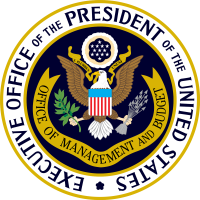OMB Aims To Propose Title 2 Revisions by Sept. for Comment

The Office of Management and Budget (OMB) received more than 2,000 public suggestions on ways to improve grant-related guidance under Title 2, including the uniform guidance (2 C.F.R. Part 200), that were submitted through an OMB request for information earlier this year. It now is assessing those comments — along with other concerns from federal agency officials and Inspectors General offices — in preparation for issuing proposed revisions to Title 2 by September to meet its planned timeline to finalize these changes by the end of the year.
Speaking to attendees at the recent National Grants Management Association’s Annual Grants Training conference in Washington, D.C., Deidre Harrison, deputy controller at OMB, said that her office does not intend to make revisions “to change the guidance, but to clarify the guidance.”
“Many [in the grants community] ask us the same questions over and over [about uniform guidance provisions], which means it’s not written as clearly as it should be,” Harrison explained. “You shouldn’t have to be a lawyer to understand the uniform guidance. To fix that, we’re working to rewrite it in plain English.” She added that in many cases, the guidance details what applicants, recipients and auditors cannot do, but it is not as clear as to what they can do.
As part of the revisions, OMB still aims to keep the structure of Title 2 and maintain the numbering of provisions as currently presented to maintain consistency. Harrison added that once the revisions are finalized and become effective, OMB also plans to provide training and update its Title 2 Frequently Asked Questions accordingly. If the revisions are finalized by the end of the year, the updated version would be effective for awards issued on or after its effective date.
Reducing Burdens
Along with clarity, the revised guidance also will look to reduce burdens on stakeholders attempting to comply with its requirements. However, Harrison noted that some of these “pain points” stem not as much from the uniform guidance, but from inconsistent implementation and interpretation by federal awarding agencies. For example, she noted that some agencies have issued notices of funding opportunity (NOFOs) that are “entirely too long.” “We want to make sure we are clear about what a good NOFO looks like in terms of length, content and substance so that agencies are clear about the requirements and can best enable [applicants] to apply for opportunities,” she said.
The Title 2 revisions also will include some administrative priorities and statutory updates (e.g., requirements under the Build America, Buy America preference in the Infrastructure Investment and Jobs Act (Pub. L. 117-58)) and address portions in the current guidance that may appear contradictory. “We’re committed to getting this done by the end of the calendar year; therefore, we will have to issue [proposed guidance] by September at the latest,” she said. “We’re taking on a huge task, and if we change something that makes your life more difficult, please let us know [when the revisions are proposed] because we are taking on a lot. However, I believe putting it in plain English and making it clearer will go a long way to getting the document in better shape.”
Attendees questioned if and when federal agencies would be required to adopt the 2023 revisions, noting that the Department of Health and Human Services has yet to adopt the 2020 revisions within its regulations at 45 C.F.R. Part 75. “The expectation is that all agencies will adopt this revised uniform guidance,” Harrison responded. “We don’t want [an inconsistent] transition” to the newly revised guidance, so OMB is working with agencies on when they should adopt it so that recipients will know which version (i.e., provisions under the 2020 revisions or the 2023 revisions) apply to their awards.
2023 OMB Compliance Supplement
Harrison also updated attendees about OMB’s plan for issuing the 2023 OMB Compliance Supplement, noting that it is “on track for an early May issuance.” Although she didn’t provide many details about what would be included within the document, she explained that, due to the addition of multiple pandemic-related programs, it would have more programs than the 2022 version. While the supplement is expected to contain a large number of high-priority programs, Harrison stressed that agencies should better explain to OMB going forward why some programs need extra scrutiny, noting that one of the goals of the Compliance Supplement is to create consistency among programs.
Harrison also said that the Federal Audit Clearinghouse is still slated to transition from the Census Bureau to the General Services Administration (GSA) this fall. Federal fiscal year (FY) 2022 single audit packages will continue to be sent to the current FAC at https://facweb.census.gov/uploadpdf.aspx, and not to the GSA FAC. However, single audit packages for FY 2023 — and those for subsequent fiscal years going forward — must be sent to the GSA FAC (FAC.gov).
Harrison said improving the quality of information garnered from single audits is vital and must be improved. “We collect audits via PDF, and that doesn’t provide access to information the way we need it to analyze it,” she explained. “We need to collect information in a more electronic way, so we need auditors to partner o with us to find ways to better present data to analyze it.”
One future concern Harrison noted relating to single audits is how agencies apply audit requirements to for-profits. She said that some awarding agencies are applying single audit requirements to for-profit organizations, while others are not. “We need to think about that,” she added. She also stated that OMB must consider how the federal government should collect enough single audit information so that awarding agencies can effectively use the data. “These are tough questions, so it won’t all be done this year, but we are working on it.”
Fraud Prevention
Lastly, Harrison discussed plans under President Biden’s recently released three-part, $1.6 billion COVID-19 anti-fraud proposal that would take specific measures — including expanding the audit capabilities of the Pandemic Response Accountability Committee’s (PRAC) Pandemic Analytics Center of Excellence (PACE) and supporting funding for grants to upgrade financial systems — to limit fraudulent pandemic-relief payments and provide more time to continue investigations.
The three goals under the Biden proposal, which is a separate spending proposal that is not part of the appropriations process and must get congressional approval, are to provide: (1) $600 million to ensure resources and time are available for investigations and prosecution of those engaged in major or systemic pandemic fraud; (2) $600 million for measures to prevent fraud and identify theft in public benefit programs; and (3) $400 million to help victims of identity theft.
“We need to be able to be ready [for any future emergencies] to vet new recipients, to create new programs and get money to the right person at the right time in the right amount,” she said. “Today, we’re not there yet, but with this proposal, we’re on our way.”



